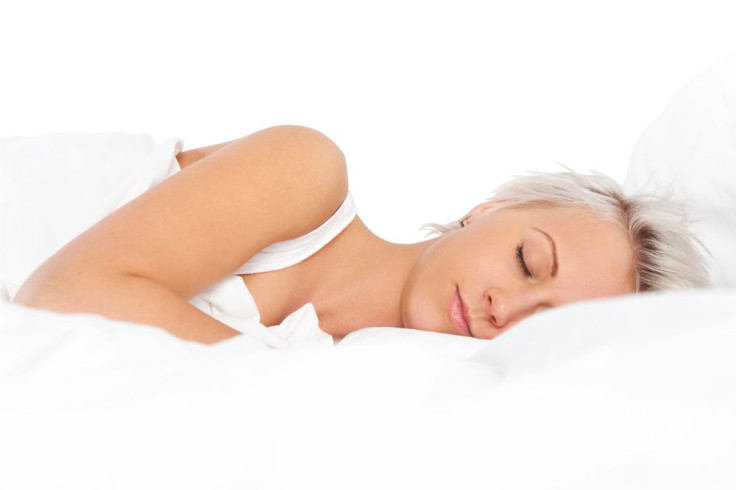Melatonin, The Sleep Hormone, May Help Bones Stay Strong As We Age

A new study might bring a new meaning to getting one’s “beauty sleep.” Researchers from McGill University have just discovered that melatonin supplements could make bones stronger — in rats. Nevertheless, the findings offer new insight into possible osteoporosis treatments.
The mechanisms behind why this happens are actually quite easy to understand. Osteoblasts, one type of large cell present in bones, help to build bone tissue, and they tend to be more active during the day. Osteoclasts, on the other hand, resorb bone tissue, breaking it down, over and over again — It’s a constant process between the two. As we age, and start losing sleep more often, osteoclasts begin to get the upper hand. The combination of lost sleep and increased bone stress “tends to speed up the process of bone breakdown,” said Faleh Tamimi, professor at the University’s School of Dentistry, in a press release.
For those who are at risk of developing osteoporosis, melatonin supplements may be enough to reset their circadian rhythms, get them sleeping again, and could possibly reduce the effect of osteoclasts on the bone.
They discovered this after testing a melatonin solution on 22-month-old rats, which would have been 60 years old in human years. For 10 weeks (six years in human years), the rats drank the solution, after which the researchers compared their femurs’ strength to those of a control group. Bone density and strength tests showed that their bones were stronger, when compared to the control group. In another, rather brutal, test to prove their strength, they broke the rats’ bones. The results were confirmed. It took much more force to break the bones of the rats that took the melatonin than it did to break the bones of the control group.
The researchers are looking at these results as a possible solution for the 54 million people who are at risk of osteoporosis due to low bone mass. Although the condition is most associated with occurring in women, men are also at risk of developing it. In all, one in two women and one in four men over 50 years old are at risk of breaking a bone from osteoporosis, according to the National Osteoporosis Foundation.
Tamimi said that his team’s next steps are to determine whether melatonin can only prevent reductions in bone density, or if it can repair damage that has already occurred. “Until there is more research as well as clinical trials to determine how exactly melatonin is working, we can’t recommend that people with osteoporosis go ahead and simply take melatonin supplements,” he said.
Of course, a simpler answer may be to just get more sleep.
Source: Tamimi F, Eimar H, Barralet J, et al. Melatonin dietary supplement as an anti-aging therapy for age-related bone loss. Rejuvenation Research. 2014.



























